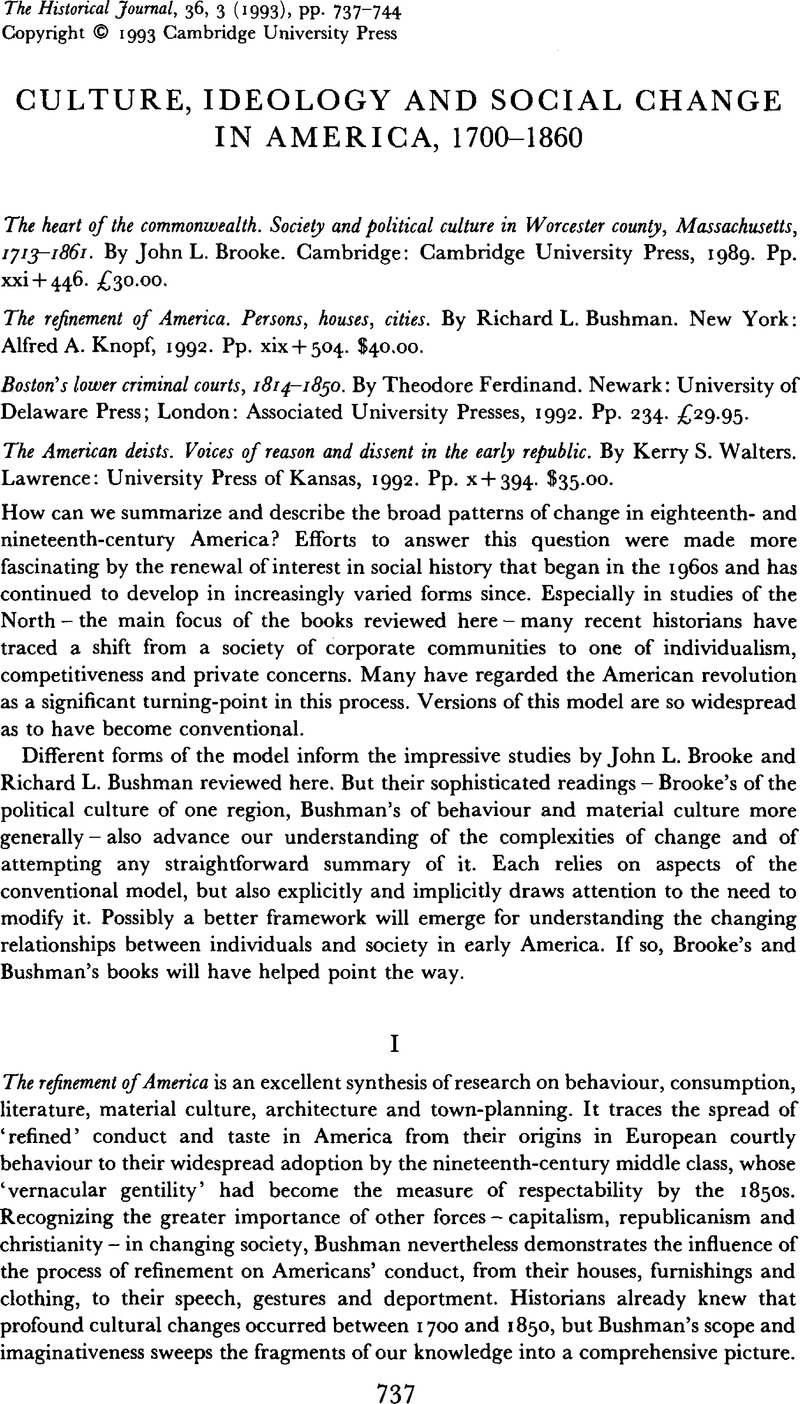No CrossRef data available.
Published online by Cambridge University Press: 11 February 2009

1 On workers' mixed responses to social reform, see Dawley, Alan and Faler, Paul, ‘Working class culture and politics in the industrial revolution: sources of loyalism and rebellion’, Journal of Social History, IX (1976), 466–80CrossRefGoogle Scholar. Rosenzweig, Roy, Eight hours for what we will: workers and leisure in an industrial city, 1870–1920 (Cambridge, 1983)Google Scholar discusses later nineteenth-century working class culture in Worcester, Massachusetts, including, in ch. 5, conflicts over the creation of a city park system inspired by Olmsted's ideas.
2 See Bushman, Richard L. and Bushman, Claudia, ‘The early history of cleanliness in America’, Journal of American History, LXXIV, 4 (1988), 1213–38CrossRefGoogle Scholar.
3 Ryan, Mary P., Cradle of the middle class: the family in Oneida county, New York, 1790–1865 (Cambridge, 1981)Google Scholar, ch. 5, passim.; idem, Women in public: between banners and ballots, 1825–1880 (Baltimore, 1990), passim.
4 Jefferson to John Adams, 28 Oct. 1813, quoted in Walters, Kerry S., The American deists: voices of reason and dissent in the early republic (Lawrence, Ks., 1992), p. 124Google Scholar.
5 On the rise and significance of liquor offences, see Hindus, Michael S., Prison and plantation: crime, justice and authority in Massachusetts and South Carolina, 1767–1878 (Chapel Hill, 1980)Google Scholar .
6 See the review by Taylor, Alan in Reviews in American History, XIX, 3 (1991), 347–52CrossRefGoogle Scholar.